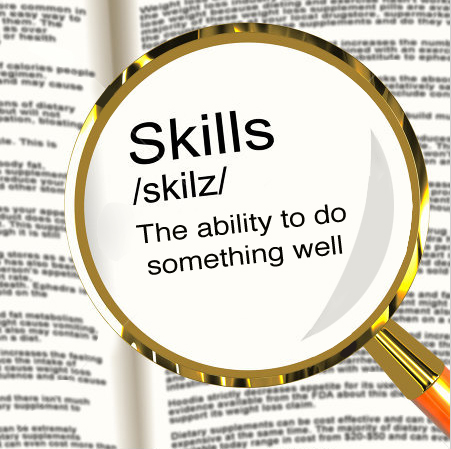
Just last week, I had the pleasure of presenting at the School of Fine Arts Experience for Prospective Students where I shared some information about fine arts majors, career prospects, as well as services offered at the Center for Career Development.
As I reflect on my presentation, much of what I shared can also be helpful to current fine arts students who may be questioning a chosen major, wondering what lies ahead, or trying to decipher how skills might be applied to a variety of workplace settings. First, let’s debunk a few misconceptions about fine arts that you may already know (you might want to share these with some disapproving relatives):
- 90% of students who attended design or art school felt their experience was good or excellent
- 75% of students would attend the same institution again
- 74% of design and art students hold careers related to their degree, compared to only 53% to 58% of biology, accounting, and mechanical engineering majors who work in a field related to their degree
- Design and art students have low rates of unemployment, only around 4%
As you can see by these numbers above taken from the Strategic National Arts Alumni Project, being an art major is almost always a good experience, during and after your time as an undergraduate, and unemployment rates are much lower than we are often led to believe.
Just like any undergraduate major, art students develop important skills that can be used not just in their own field, but in many different positions and industries. In fact, a recent IBM poll of CEO’s around the world showed that creativity was ranked as the number one desired leadership skill in all different industry types. Who’s more creative than a fine arts major?!
So whether you decide to stick with the purest form of your focus and become a professional actor or totally change it up and become a lawyer, the skills you develop during your time at UConn can make you successful in almost any field, and you can develop those skills not only in classes, but in clubs, organizations, internships, and jobs.
Whatever career path you decide to take, remember that the skills you gain here apply to all kinds of different positions. Strategically choosing clubs, internships, and other positions that develop the skills you need for the industry you are interested in is a great way to ensure your preparedness and marketability for the positions you decide to apply for.
Stop by the Center for Career Development to meet with a career consultant during walk-in hours, Monday-Friday from 12-4 to discuss your individual career goals and hopefully join the other 90% of alumni who feel good about their fine arts school experience!
